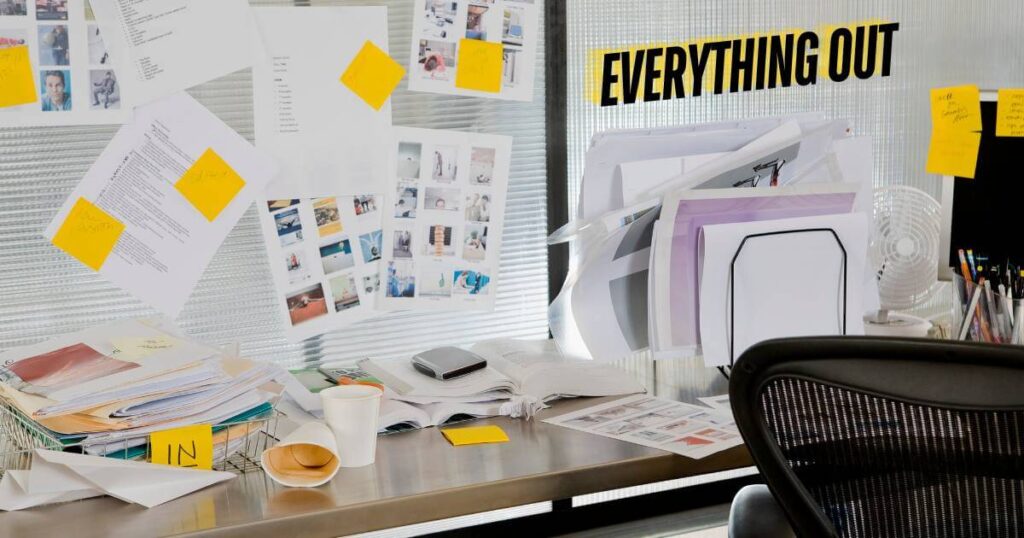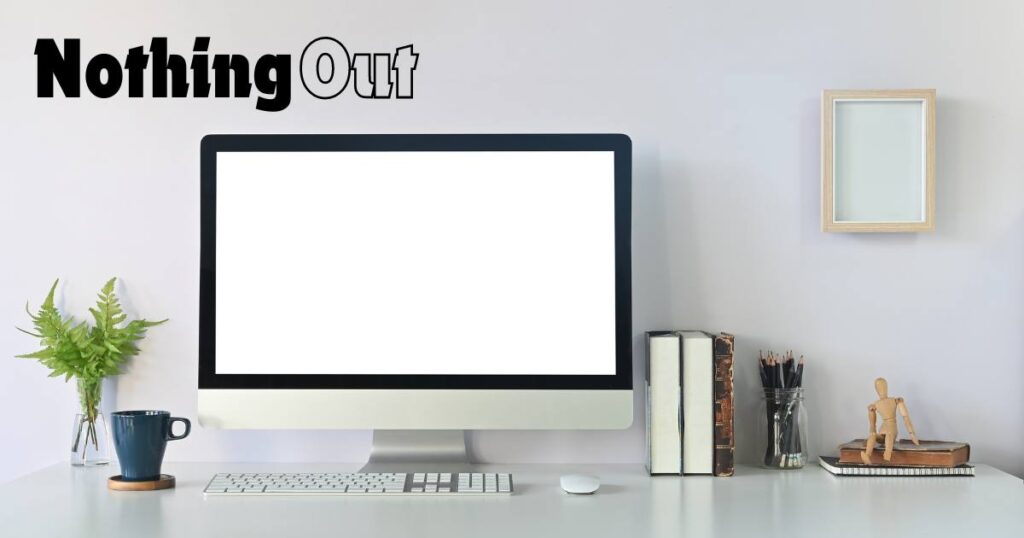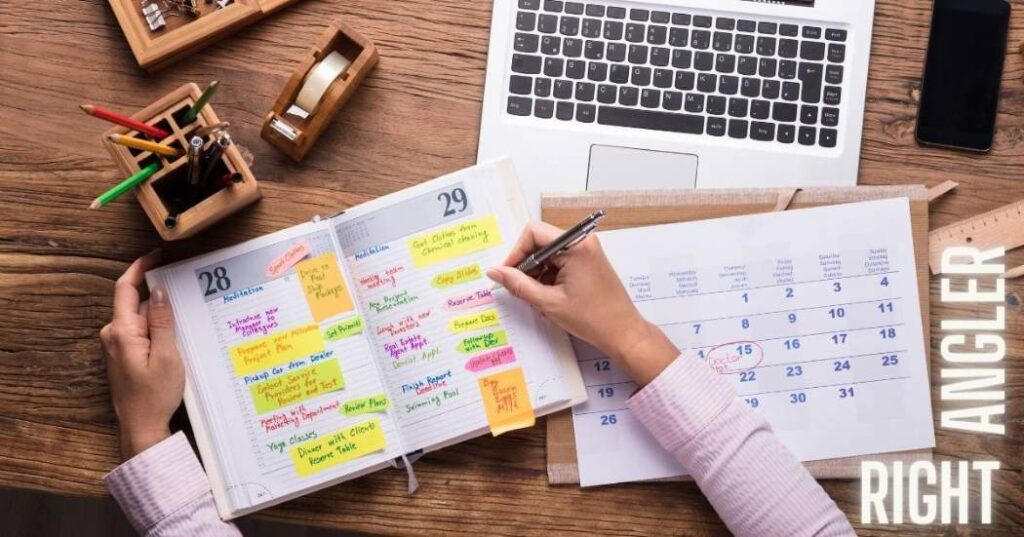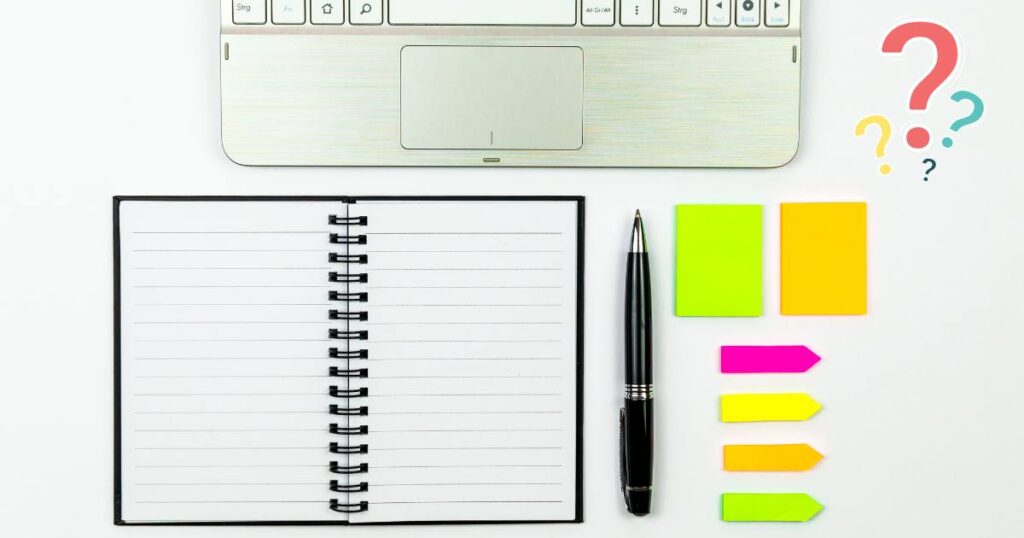What pictures pop into your mind when you hear “organized?” You might imagine a clutter-free room, or a cabinet filled with hundreds of folders and papers perfectly sorted. Perhaps you even secretly find these images revolting and wonder if you and organization just aren’t meant to coexist.
Good news: There’s no “right” way to organize! Good organization creates an environment that lets you get things done. You simply need to discover your comfort zone. For some, good organization means having a “busy” desk where everything is visible. For others, it means putting everything neatly away and out of sight. The key is to determine what style works best for you.
What’s Your Organizational Style?
Not sure how to start organizing? An “organizational styles” assessment can help you learn techniques based on your natural preferences. Best of all, this step only takes about five minutes to complete!
Check out the three quizzes below, labeled A, B, and C. The results of these quizzes will determine your preferred organizational style. Grab a piece of paper (or the Notes app on your phone). Read the statements and write 0 for never, 1 for occasionally, and 2 for frequently. Then, total your points for each quiz.
Type A:
_____ Do you prefer having things out where you can see them?
_____ Do you write notes on any paper that catches your eye?
_____ Does putting things away feel like a waste of time if you’ll use them again soon?
_____ Do you believe that out of sight is out of mind?
_____ Do you like surrounding yourself with pictures, drawings, cartoons, etc.?
_____ When you do a project, do you spread out everything you need and leave it until it’s finished?
_____ Do you forget about things you put away?
_____ Do you think piles are evidence that you’re working hard?
_____ When filing papers away, do you worry you’ll never see them again?
_____ Do you like things staring you in the face as a reminder of what you must do?
Type B:
_____ Do you hate to see clutter?
_____ Does having a clear desk/space make you feel like you have control?
_____ Does a clear space equal a clear mind?
_____ Do you put everything away/out of sight before people come over?
_____ Do you prefer to have only what you need at that moment on your desk?
_____Are containers and folders helpful for keeping things out of sight?
_____ Does writing things down in a notebook appeal to you?
_____ Do you like to put things away after using them?
_____ Does putting things away make you feel like you’ve accomplished something?
_____ Do you hide things and then forget about them?
Type C:
_____ Do you feel like you’re getting organized when you straighten up your space?
_____ Do you like neat piles?
_____ Would you rather straighten than clean?
_____ Does clutter not bother you as long as it is neat?
_____ Do you like arranging things in a certain way on shelves?
_____ When you feel stress, does it make you feel better to straighten something up?
_____ When you see an item that is out of place, do you feel the need to put it back?
_____ Does it annoy you when pictures are crooked?
_____ Does having to change your system/routines bother you?
_____ If something is very messy, do you have to avoid it until you can clean it up?
Which Style Did You Score Highest In?
If you scored highest in…
…A, you’re an Everything Out organizer
…B, a Nothing Out organizer
…C a Right Angler organizer
Maybe you even scored more than one! Let’s investigate each style in more detail.
Everything Out Style

Does your workspace look like this picture? Do you have a collection of papers and office supplies on top of your workspace? If you’re an “Everything Out” person, it’s important to:
- Use labeled bins, trays, or clear storage containers on your workspace; this way, the papers are visible but neatly arranged and categorized.
- Color code papers and assignments to make them easily identifiable at a glance (this also goes for your calendars).
- Use a bulletin board for important messages that you can clearly see from your workspace.
- Set phone alerts to audibly or visually remind you of important tasks and to-do list items.
- Take a second look to see what you need to have out on your workspace. If it doesn’t need to be out, put it away!
Nothing Out Style

Do you hate clutter? Do you have a clear workspace but sometimes lose important documents or papers? If this is your style, consider these tips:
- Filing is an important tool. Whether physical or digital, create a folder for each course you’re taking and place papers back where they belong.
- Keep folders or binders in the same place, such as your backpack or a certain document in your “My Documents” folder so they’re easy to retrieve.
- Use flash drives and organizational apps or mobile calendars; the information is stored away “out of sight” but still well-organized.
- Use a student planner to write everything down, then close it to keep the information safely contained but out of sight.
Right Angler Style

Do you have a unique way of organizing your workspace that works for you and only you? If this is your style, consider:
- Using a 3-ring binder with tabs. This may look neater on your workspace and you’ll have more flexibility with how you arrange your documents.
- Arrange by colors, shapes, or subjects.
- Take time to “clean up” and “stack” at the end of each workday.
- In general, ensure you can find what you need in 3 minutes or less.
Why Organize?
Motivational speaker Michael Altshuler once said, “The bad news is time flies. The good news is you’re the pilot.”
Ultimately, time management is about life management. We only get 24 hours in a day. Until someone invents a time machine, we can’t actually “manage time,” only how we live within that time. No matter your lifestyle, the key is to have an organizational style that makes you comfortable. Organization looks different to different people. Experiment and find what works best for you.
Managing your space is one of the most essential life skills for school and your future job or career. The good time management habits you develop now will pay off today and for many years to come. With good organization habits, you’ll achieve goals more efficiently, increase productivity, get more time for yourself, reduce stress, and clear your space (and your mind!)
If you have trouble getting started, use the 5-minute rule. Set the timer on your phone for 5 minutes and get organizing! You may surprise yourself with how much you can do in such a short time! After all, the lifelong journey to good organization begins with your very next minute.
- “I was Destined to Save Lives” – Ary Quinones’ Journey to Nursing - May 7, 2025
- Service-Learning: Celebrating 37 Years of Changing Lives and the World - April 30, 2025
- Alumni Spotlight: Cody B. Monahan - April 23, 2025




